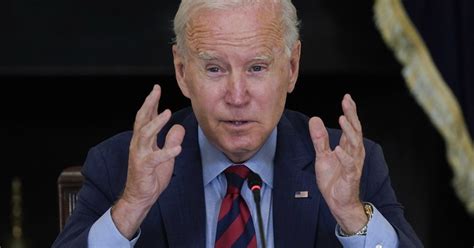On Aug. 3, the Biden administration reinstituted a nationwide eviction moratorium to extend the one that had expired on July 31.
The administration took this executive action in spite of a ruling by the Supreme Court in June finding that such a ban on evictions was not authorized under current law and could not be imposed without clear and specific congressional authorization enacted through new legislation.
Following the Supreme Court’s ruling in June and up through Aug. 2, the White House made a number of public statements that acknowledged the court’s ruling and confirmed that the president had no authority under current law to renew and extend the ban. The White House made clear that, in light of the court’s ruling, it was up to Congress to pass new legislation that authorized the president to renew the moratorium.
Congress did not pass such legislation. Nevertheless, on Aug. 3, the administration reinstated a ban on evictions. Commenting on the reinstatement, President Joe Biden admitted , “The bulk of the scholars say that it is not likely to pass constitutional muster.” But he said that he could use the time that it will take landlords to litigate the legality of the ban to get the additional rent relief payments previously authorized by Congress out the door and distributed to renters who might otherwise face eviction.
On Aug. 4, press secretary Jen Psaki implied that the White House does not believe most people care whether or not the president’s actions are legal, so long as they provide some benefits. When asked by a reporter about the constitutional issues raised by the reinstatement of the moratorium, Psaki responded , “I’m not sure there are Americans evaluating it to that degree.”
Psaki is correct that the public discussion of actions taken by the government now focuses almost exclusively on policy outcomes, winners and losers, and who benefits and who is hurt by the government action being discussed. Little or no attention is paid to the vitally important question of whether the government action being discussed is lawful or not and whether it is authorized under the Constitution and relevant statutes or not.
As a result of this steady focus on policy outcomes and the continued lack of attention to questions of lawfulness, we are in danger of losing sight of how vitally important it is to pursue policy objectives in a lawful manner, through the institutions and in accordance with the precedents and procedures that the law has established for this purpose. We enacted the Constitution to establish the rule of law and to limit the use of otherwise unrestrained power in the pursuit of policy objectives.
If we come to care only about the outcomes and cease to care about the legality of the means used to achieve those outcomes, we will destroy our constitutional system and the rule of law. That would be suicidal. The rule of law is essential to the orderly functioning of a free society. Without the rule of law to restrain the use of power, we are left alone to face the threat of unrestrained power.
All of us, regardless of our individual political affiliations, must understand clearly that the use of unrestrained power to pursue policy objectives is a dangerous game. It is a game that any can play, friend and foe alike. And because of that, in the end, it is a game that no one can win.
Read More From The PatriotAmerican
Whatever our political differences are at the moment, we all, in the long run, have a shared interest in preserving the rule of law. Without the rule of law, we are at the mercy of those who would use force to achieve their objectives. Without the rule of law, we are at the mercy of the mob.

